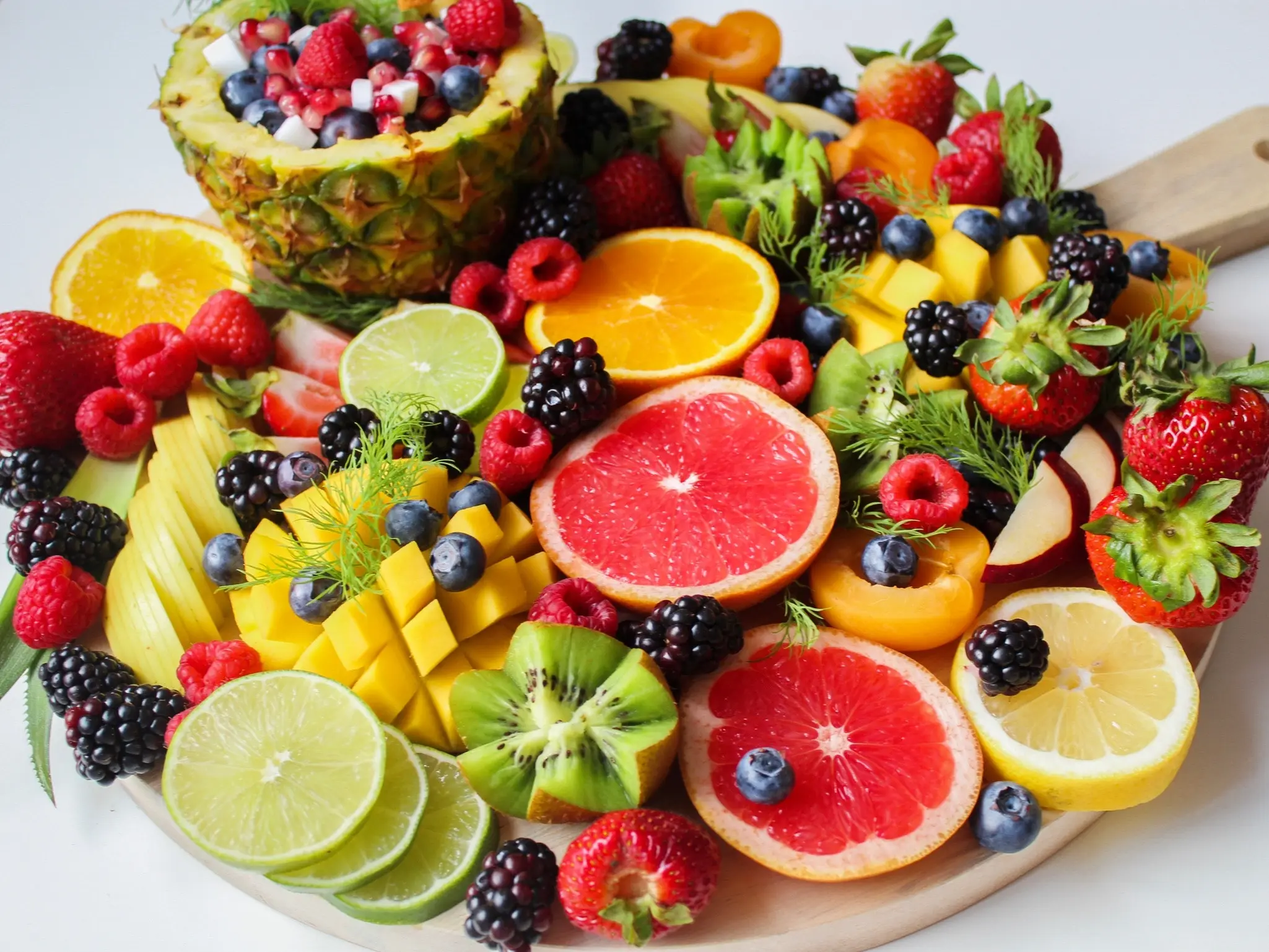2023 Prenatal vitamins for pregnant women: It is essential for Pregnant women to have a healthy pregnancy period. She always thinks in her mind whether her pregnancy will be healthy or not. To meet all essential needs it is necessary for moms to be to have all the vitamins. In this article, we are going to discuss essential vitamins required for prenatal conditions.
Prenatal vitamins are a type of dietary supplement that is specifically formulated to provide essential nutrients for pregnant women and their developing babies. They typically contain a combination of vitamins and minerals that are important for fetal growth and development, as well as for the mother’s health. Prenatal vitamins when not pregnant is important.
Here are the following most important prenatal vitamins which includes:
As we know that the fruits are the rich source of vitamins. In the previous article of 10 powerful fruits for pregnancy we discuss about fruits which are essentials for providing necessary vitamins to the body of mom to be women. Here are the following vitamins which are required to ensure the healthy pregnancy.
Folic acid:
This vitamin is essential for the formation of the neural tube, which becomes the baby’s brain and spinal cord. It is recommended that women take 400-800 mcg ( folic acid for pregnancy dose) of folic acid daily, before and during pregnancy.

Iron:
Iron is necessary for the production of hemoglobin, a protein in red blood cells that carries oxygen to the body’s tissues. Pregnant women need more iron than non-pregnant women to support the growth of the placenta, the fetus, and the mother’s blood volume. Daily intake of Iron should be 30-60 milligrams.
Calcium:
Calcium is necessary for the development of strong bones and teeth for the baby and the mother. Daily intake of Calcium should be 1,000 milligrams.
Vitamin D:
Vitamin D is important for the absorption of calcium and the development of strong bones and teeth. It’s also important for the development of a healthy immune system and the proper functioning of the muscles and nerves. The daily intake of Vitamin D should be 600-800 international units (IU).
Vitamin B12:
Vitamin B12 is important for the development of the baby’s nervous system and the formation of red blood cells.The daily intake of Vitamin B12 is 2.6 micrograms.
Vitamin A:
Vitamin A is important for the development of the baby’s eyes, skin, and immune system.
Vitamin C:
Vitamin C is important for the formation of collagen, a protein that helps build the baby’s skin, bones, and blood vessels.
Vitamin E:
Vitamin E is important for the development of the baby’s brain, eyes, and immune system.
It’s important to keep in mind that these are just examples of the most common vitamins found in prenatal supplements and the exact content may vary depending on the brand and the product. It’s important to check the label and consult with a healthcare provider before taking any supplement.
Followings are the minerals and vitamins required for Pregnancy
| Nutrient Daily Recommended Amount | Why You and Your Fetus Need It | Sources of Vitamins |
|---|---|---|
| Calcium (1,300 milligrams for ages 14 to 18; 1,000 milligrams for ages 19 to 50) | Builds strong bones and teeth | Milk, cheese, yogurt, sardines, dark green leafy vegetables |
| Iron (27 milligrams) | Helps red blood cells deliver oxygen to your fetus | Lean red meat, poultry, fish, dried beans and peas, iron-fortified cereals, prune juice |
| Iodine (220 micrograms) | Essential for healthy brain development | Iodized table salt, dairy products, seafood, meat, some breads, eggs |
| Choline (450 milligrams) | Important for development of your fetus’s brain and spinal cord | Milk, beef liver, eggs, peanuts, soy products |
| Vitamin A (750 micrograms for ages 14 to 18; 770 micrograms for ages 19 to 50) | Forms healthy skin and eyesightHelps with bone growth | Carrots, green leafy vegetables, sweet potatoes |
| Vitamin C (80 milligrams for ages 14 to 18; 85 milligrams for ages 19 to 50) | Promotes healthy gums, teeth, and bones | Citrus fruit, broccoli, tomatoes, strawberries |
| Vitamin D (600 international units) | Builds your fetus’s bones and teethHelps promote healthy eyesight and skin | Sunlight, fortified milk, fatty fish such as salmon and sardines |
| Vitamin B6 (1.9 milligrams) | Helps form red blood cellsHelps body use protein, fat, and carbohydrates | Beef, liver, pork, ham, whole-grain cereals, bananas |
| Vitamin B12 (2.6 micrograms) | Maintains nervous systemHelps form red blood cells | Meat, fish, poultry, milk (vegetarians should take a supplement) |
| Folic acid (600 micrograms) | Helps prevent birth defects of the brain and spineSupports the general growth and development of the fetus and placenta | Fortified cereal, enriched bread and pasta, peanuts, dark green leafy vegetables, orange juice, beans. Also, take a daily prenatal vitamin with 400 micrograms of folic acid. |
What are the advantages of the Prenatal Vitamins
Prenatal vitamins are a type of dietary supplement that are specifically formulated to provide essential nutrients for pregnant women and their developing babies. They can offer a variety of advantages, including:

Ensuring adequate nutrient intake:
Prenatal vitamins can help pregnant women ensure that they are getting enough of the essential vitamins and minerals that are needed for healthy fetal development.
Reducing the risk of birth defects:
Adequate intake of folic acid before and during pregnancy can help reduce the risk of certain birth defects, such as neural tube defects.
Supporting maternal health:
Prenatal vitamins can also help support the mother’s health during pregnancy by providing her with the necessary nutrients for her own body’s needs.
Preventing anemia:
Iron-containing prenatal vitamins can help prevent iron-deficiency anemia, a condition that can cause fatigue and other symptoms in pregnant women.
Enhancing immune system:
Prenatal vitamins may also help to enhance the immune system of the mother and the baby, helping them fight off infections.
Supporting proper growth and development:
Prenatal vitamins can help support the proper growth and development of the baby’s bones, teeth, eyes, skin, and other organs and systems.
It’s important to note that prenatal vitamins are not a substitute for a healthy diet, but they can help fill in any gaps in nutrient intake. It’s important to consult with a healthcare provider before taking any supplement, especially during pregnancy.
What are the other dietary supplements required for pregnant women
Pregnant women may need to take additional dietary supplements in addition to prenatal vitamins, depending on their individual needs and circumstances. Some additional supplements that may be recommended for pregnant women include:
Omega-3 fatty acids:
These fatty acids, found in fish oil, can help support the development of the baby’s brain and eyes.
Probiotics:
Probiotics are beneficial bacteria that can help support the mother’s immune system and the baby’s gut health.
Vitamin K:
Vitamin K is important for blood clotting and may be recommended for pregnant women who are at risk of bleeding during delivery.
Iodine:
Iodine is important for the development of the baby’s brain and thyroid gland.
Choline:
Choline is an essential nutrient for fetal brain development and may be recommended for pregnant women who don’t consume enough choline from their diet.
Vitamin D:
Some pregnant women may require vitamin D supplement since they may not get enough from sun exposure or diet.
Summary:
Requirement of above mentioned Vitamins and supplements are for reference only. It’s important to note that not all women will need to take all of these supplements, and the exact recommendations may vary depending on the individual. It’s important to consult with a healthcare provider before taking any supplements, especially during pregnancy as some supplement may be harmful. They will be able to assess your specific needs and recommend the appropriate supplements for you.
Also read: 10 Healthy Powerful Fruits for a Healthy Pregnancy: Nutritious Choices for Expecting Mothers




